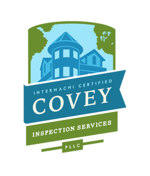
Texas Adjuster Licensing & Training
Attend in-person classes on two consecutive weekends and become a TDI licensed insurance adjuster.
Next Available Pre-License Class
Class Dates:
Aug 17-18 & 24-25, 2024
(All four days are required)
$400 (State-approved exam included)
Enrollment Deadline:
Aug 11
Prerequisite Requirement
Classroom location:
1425 W Pioneer Dr, Ste. 203
Irving, TX 75061
About Insurance Claims Adjusting
Insurance claims adjusters investigate insurance claims and determine how much an insurance company should pay for damages. They inspect property damage to homes, business, autos, planes, boats, etc., interview different people involved, consult with police, hospitals, and more, depending on the type of claim.
Duties of an adjuster include (but are not limited to):- Analyze the insurance policy to determine coverage
- Investigate the events and cause of the damage
- Calculate repair/replacement cost of the damaged item(s)
- Negotiate the settlement
Adjusters can work directly for insurance companies usually at an office building or out of their home, an independent adjusting firm traveling to storm locations, or as a public adjuster who represents the policyholder.
Earning Potential
The amount you earn as an adjuster can vary:
- Independent adjuster - Each firm deploying adjusters have a tiered fee schedule, using the extent of damages. (See sample fee schedule).
- Desk adjuster - Insurance companies usually pay desk adjusters an hourly rate (with potential overtime) averaging $61k annually.
- Staff adjuster - Staff adjusters are typically salaried employees, averaging $55k annually. Desk and staff adjusters typically receive benefits (i.e., insurance, vacation and sick leave); however, there are additional benefits for staff adjusters. Desk adjusters have to "punch a time clock", whereas staff adjusters have much more flexibility in scheduling and may have a company vehicle as well.
- Public adjuster - Public adjusters enter into a contract with a property owner for 15%-20% of the repair estimate. For example, if the public adjuster has a 20% contract and the extent of damage was $10,000, the property owner would pay the public adjuster $2,000 and keep the remainder.
Adjuster Licensing
License Types
In Texas, there are three adjuster license types:- Property and Casualty (Residential, Commercial, Auto, Farm/Ranch/Agriculture, Inland and Ocean Marine, and Bonds)
- Workers Compensation
- All-Lines (Combined Property and Casualty with Workers Compensation)
Licensing Process
There are several steps you must follow to earn your adjuster license:- Attend a 40-hour pre-licensing class (our classes) from an authorized provider. Providers and courses can be validated on https://www.Sircon.com by selecting either 'Approved Courses Inquiry' or 'Approved Providers Inquiry'.
- Pass the 150-question, state-approved exam in less than three hours.
- Have your fingerprints scanned for a background investigation. Note: Although you may have submitted your fingerprints for other licenses (i.e., home inspector, teacher, pharmacy technician, concealed weapon permit, etc.), TDI will still require a new set of fingerprints. There is one exception: if you are a licensed insurance agent for Texas and your license is active, you do not need to resubmit your fingerprints. To schedule your fingerprints, refer to this document: Texas Fingerprint Service Code Form.
- Submit your application to the Texas Department of Insurance via https://www.Sircon.com.
If you are not a Texas resident and your resident state requires adjusters to be licensed, you must obtain your adjuster license for that state before applying for the Texas license. If you are a resident of a reciprocal state, you will not need to take this class.
You can choose from one of our unique classes, specifically designed to help you become a licensed all-lines adjuster in Texas. An all-lines adjuster is licensed to handle any insurance claim in the state of Texas.
Some companies charge $500 for their class. After completing their class, you are required to travel to a testing facility to take a 150-question, computer-based test, drawn from over 1,000 possible questions. Many frustrated students take (and fail) the exam several times.
Our classes are designed with different learning styles in mind and our state-approved exam is given on the last day of class. No additional testing is required. Students also have online practice tests to reinforce the material.
Reciprocity
Some states do not require licensed adjusters whereas other states do require adjusters to be licensed.
No Licensing Required
Many states recognize the high quality of the Texas Insurance Adjuster license. When you receive this license, you will be able to obtain a license in other states without taking another course or exam. Using https://www.Sircon.com, select the desired states, complete the applications, and pay the applicable application fees.
Reciprocity Granted
The following locations have specific licensing requirements. These do not offer reciprocity to the Texas adjuster license.
No Reciprocity
Class Schedule
This four-day class is taught over two consecutive weekends. You must complete the prerequisite self-study and attend all four days.
The class meets 8:00-5:00 with a one-hour lunch break covering the following topics:
- Insurance terms and related concepts
- General property insurance product knowledge pertinent to adjusters:
- Standard fire policy
- Personal lines coverage (auto, health, etc.)
- Auto liability (includes Texas PAP)
- Standard Fire Policy (homeowners)
- Additional coverages, exclusions, and extensions
- Commercial lines coverage
- Inland & Ocean Marine
- Bonds
- Texas statutes and rules pertinent to property and casualty adjusting:
- Licensing requirements
- Marketing practices
- Adjuster practices, responsibilities, and duties
- Workers compensation
Class location:
1425 W Pioneer Dr, Ste 203
Irving, TX 75061
Adjuster Files
The files listed below are necessary for this class and for you to get your adjuster license.
- Read Me First ~ This file contains more details about the remaining files. Read this first.
- Detailed Course Outline ~ This is the planned instruction time per topic. The specific start and stop time of each section and lunch break is approximate.
- Prerequisite Self-Study ~ This class is 40-hours with 10 of those hours studying this file prior to class. Passing an open-book, online exam (minimum score of 70) is required. The link and password are included in the document. You will have three attempts to pass the exam.
- Insurance Terminology Games ~ Games designed to aid in learning and memorization of insurance terms used throughout this course. 40% of the exam is based on these terms.
- Affidavit ~ You must have this document to take the class. Print this form and bring it to the first day of class.
- Texas Fingerprint Service Code Form ~ This form is needed to obtain your fingerprints for the state to conduct a background investigation. Scheduling your fingerprinting may be difficult depending on the available services and your schedule. Plan on scheduling your session prior to the last day of class so there are no delays in submitting your application.
You must use code 11G6QF when scheduling your appointment to ensure the results are submitted to the Texas Department of Insurance. - Adjuster Application ~ Screen shots of the adjuster application process. Before attempting to apply for the adjuster license, you should examine this file thoroughly and gather all the required information. Incomplete or inaccurate applications may cause significant processing delays.
Helpful Information for Adjusters
Whether you are handling claims in the field or behind a desk, here are some helpful links to assist with claim handling.
There are many useful sites available for adjusters. If you encounter any problems with any of these links or if you have a suggestion for one to be added, please contact us.
Catastrophe Adjusters
If you intend to work as a CAT adjuster, the Property Adjusting 101 guidebook is a must!
Click the file name below for contents.
What do I do now?
This is one of the most frequently asked questions as adjusters earn their license and it is a valid question.
An independent adjuster (IA) can earn a substantial income investigating catastrophe (hurricanes, tornadoes, wildfires, etc.) claims. The more claims they work, the higher their income, but unless you know someone who can recommend you to a particular company, you may have your license and do very little, if any, claims adjusting.
When a firm deploys you to a storm site, if they have never worked with you before, they may not give you many claims as they do not know what you can or cannot do.
Several factors affect how many claims an adjuster may receive, including,:
- how soon they are deployed to a storm site (using over a dozen tiers, adjusters are ranked and IA firms deploy adjusters based on their ranking)
- how effective they:
- manage their time
- inspect properties
- prepare estimates
This guidebook will focus on effectively preparing an IA to be more successful. You will learn how to
- increase opportunities to receive claim assignments
- select necessary equipment to investigate claims
- determine where you will stay when deployed to a storm site
- contact claimants timely
- effectively schedule inspections
- inspect properties
- prepare your estimates to pass file examiner review
- maintain finances
- obtain additional state licenses
- ensure continuing education compliance
- expand appropriate knowledge
Available in electronic or print version in our store's 'Paperbacks and Guidebooks' section.
**Please note this book is NOT required for the class.
Modifiable Documents - free to download
Right click on the file name and select 'Save Link As'.
- Phone Contact: Useful log to document contact when away from your computer.
- Scope Sheet: Sketch roof and elevations while noting quantity of items such as plumbing vents.
- Inventory List: Provide to claimants to create a list of personal items lost or damaged.
PDF (non-modifiable) Documents - free to download
- Phone Contact: Useful log to document contact when away from your computer.
- Scope Sheet: Sketch roof and elevations while noting quantity of items such as plumbing vents.
Web Sites:
- Texas Department of Insurance
- Monitor required Continuing Education credits
- Flood Information
- Police, Fire, Court, Motor Vehicle reports, and Background Checks
- Prior Claim Data
- Roof Pitch and Angle Conversions
Weather History Reports
About Us
Texas Adjuster Training provides training for those wanting to earn their Texas adjuster license and become successful insurance adjusters.
The owner/instructor, Clark Covey, is a licensed all-lines adjuster (TDI # 1377293) and worked as an independent adjuster handling hundreds of catastrophic claims from hurricanes, floods, hail storms, tornadoes, and fires. He has worked as a desk adjuster, file examiner, team lead, and dispute reviewer. Currently, he assists claims analytics and provides oversight to Lender Placed claims. To help ensure claim compliance and claim handling consistency, he developed several computer applications for the adjusters and management.
Clark is a U.S. Marine Corps veteran, a published author, a Real Estate Certified Professional Inspector (TREC # 20460) and a certified professional teacher in Texas.

Clark Covey


